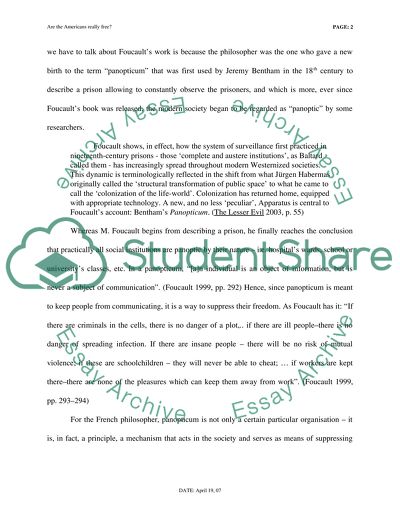Cite this document
(Are the Americans Really Free Coursework Example | Topics and Well Written Essays - 2750 words, n.d.)
Are the Americans Really Free Coursework Example | Topics and Well Written Essays - 2750 words. https://studentshare.org/politics/1517841-are-americans-really-free
Are the Americans Really Free Coursework Example | Topics and Well Written Essays - 2750 words. https://studentshare.org/politics/1517841-are-americans-really-free
(Are the Americans Really Free Coursework Example | Topics and Well Written Essays - 2750 Words)
Are the Americans Really Free Coursework Example | Topics and Well Written Essays - 2750 Words. https://studentshare.org/politics/1517841-are-americans-really-free.
Are the Americans Really Free Coursework Example | Topics and Well Written Essays - 2750 Words. https://studentshare.org/politics/1517841-are-americans-really-free.
“Are the Americans Really Free Coursework Example | Topics and Well Written Essays - 2750 Words”. https://studentshare.org/politics/1517841-are-americans-really-free.


